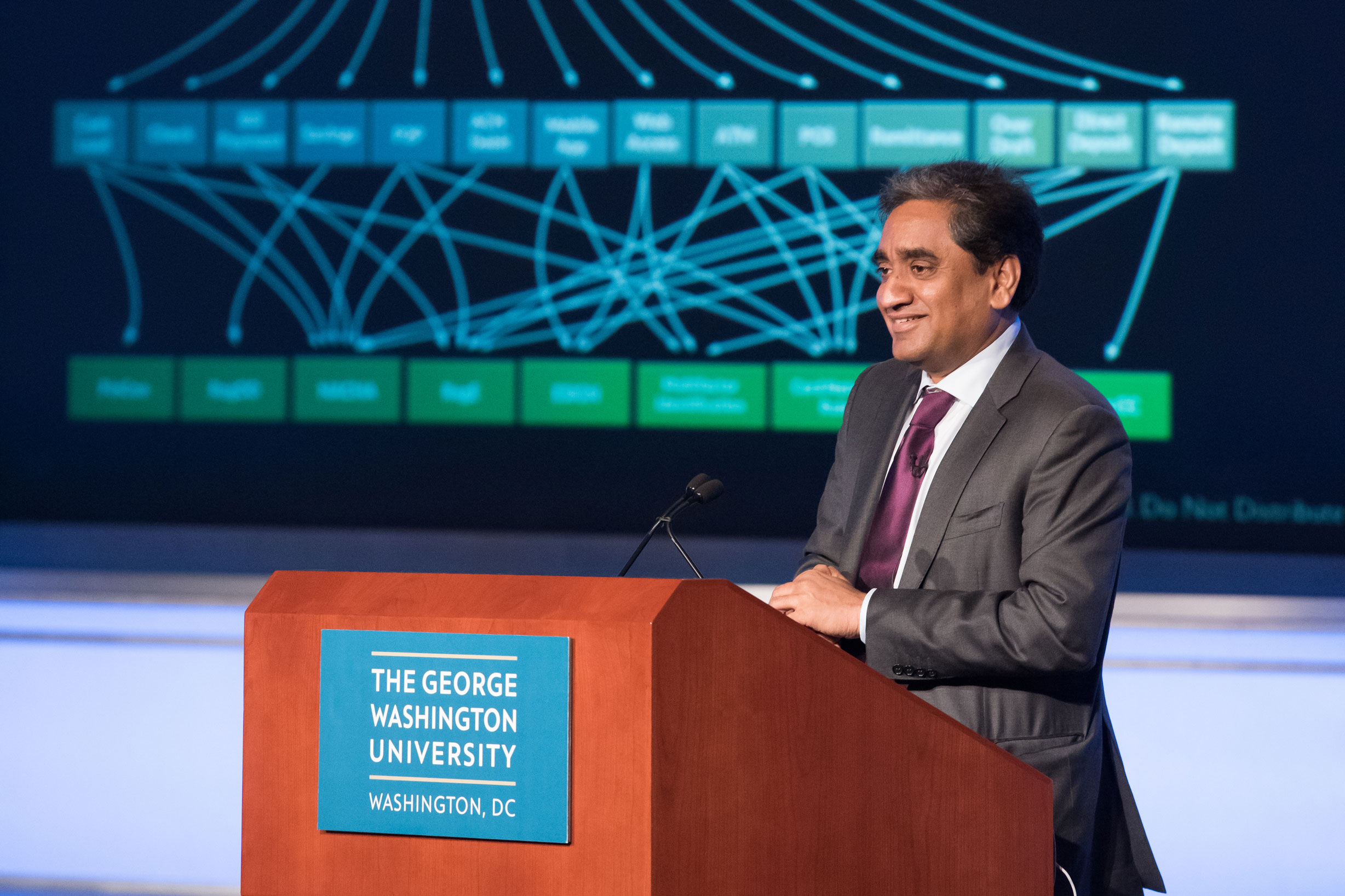You've heard of Bitcoin, the open-source digital currency and payment system that has been heralded for its peer-to-peer structure and panned for its volatility, but have you heard of "FinTech?" Although widely known, Bitcoin is just one type of "FinTech", or Financial Technology, which refers to a swath of innovations and startups that are disrupting applications, processes, products, and business models in the financial industry. Other examples include everything from household name payment services like Venmo or Square to lesser-known companies like an alternative small business lender or an automated financial advisor.
In March, the Center for Law, Economics & Finance held its first "FinTech Forum" to discuss these technologies and what they mean for the law by bringing together industry leaders, academic experts, government regulators, and legal scholars.
"The Center decided to address FinTech at this moment because it is still nascent—technologies in this space could have impacts on the scale of the ATM, credit cards, the Netscape web browser, or cellphones." said Neil Ruiz, Executive Director of the Center for Law, Economics & Finance. "The Center is aiming to be at the forefront of tackling key, market-shaping regulatory issues in this area."
For the event's keynote address, Suresh Ramamurthi, the Chairman and CTO of CBW Bank and American Banker's Innovator of the Year for 2015, discussed his journey from Google employee to bank officer. Mr. Ramamurthi bought CBW, a rural community bank located in Weir, Kansas, at the start of the recession in 2009. He recounted that his hyper-local bank keeps a knife sharpener in the lobby for waiting farmers and that customers come in and give homemade gifts around the holidays.
Not knowing much about banking, Mr. Ramamurthi set out to learn from the ground up; he worked stints as a teller, IT officer, janitor, and compliance officer—a role for which he had to return to school. He used his newfound knowledge to start developing innovative financial products like an instant payment system and a system that only allows purchases in specific contexts, such as only allowing transactions for gas after checking to make sure that the correct car is nearby.
Addressing why it is so difficult for banks to innovate quickly, Mr. Ramamurthi highlighted dense regulations. "The reason why your banks are not able to offer new products rapidly is because they can't change. It's all super-glued from the past 30 years," he said while gesturing behind him toward complex charts of interwoven approvals required to offer new gift cards.
In addition to Mr. Ramamurthi's talk, the Forum included panels about "Banks as Incubators of Innovation," "Blockchain Banking and Digital Finance," "The Role of Regulation," and "Will 'FinTech Banks' Rule the World?" A full list of speakers is available, on the GW Law website.
As FinTech continues to evolve, the Center for Law, Economics & Finance will try to remain at the forefront of the conversation. Mr. Ruiz said that the Center plans to host another FinTech Forum in Silicon Valley this fall. He also plans to make the forum annual, noting that "regulatory issues are going to evolve rapidly over the next several years."


